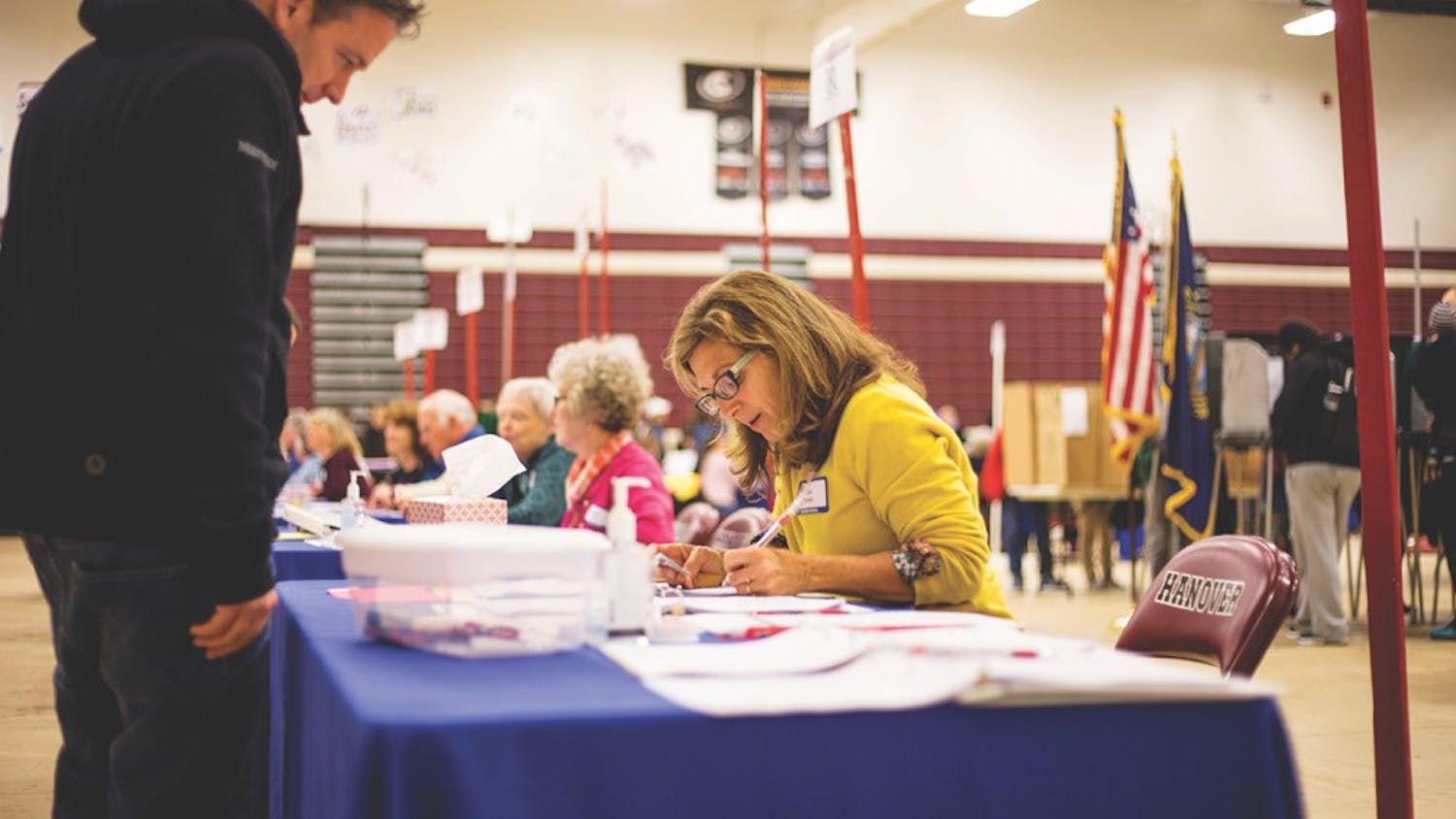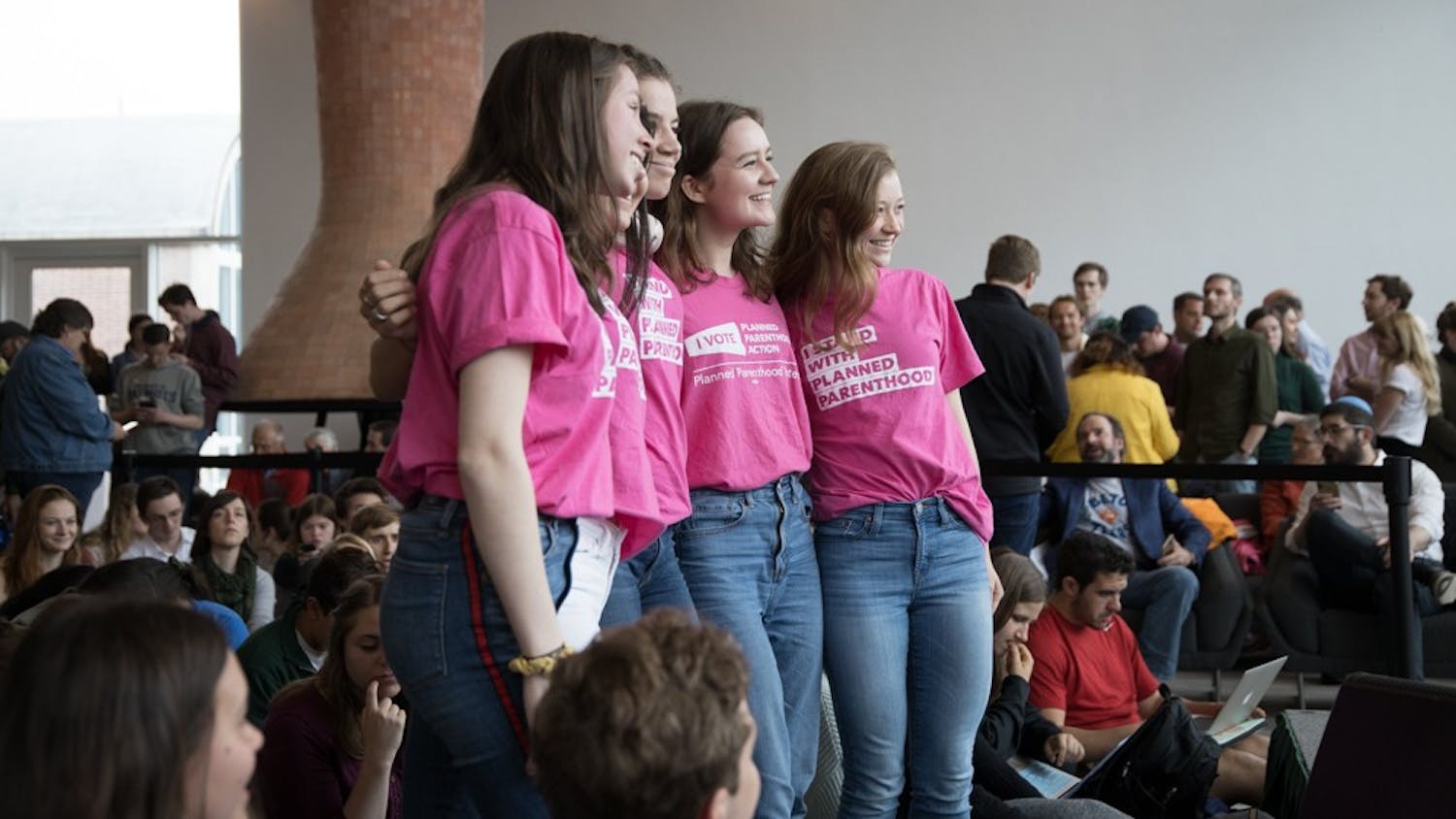Dartmouth sits right on New Hampshire’s border with Vermont; the College is, just barely, in one of the few “purple” states in the country. Election results that switch between parties year to year indicate that New Hampshire residents vote for people and policies, not just for parties. Nowadays, that is as rare as it is admirable. As a Dartmouth student and a passionate independent voter, I take great pride in this fact. However, with all of the talk about the Democratic primaries, I am reminded of an event that occurred last year during the midterm elections, which, I believe, threatened the fierce independence that defines New Hampshire.
Last October, the Dartmouth College Democrats initiated a campaign to get students to vote in the midterm elections to Dartmouth. “Get out the vote” efforts are admirable; the strength of our democracy depends on the participation of its citizens. But the apparent motivation of this particular effort was less noble.
When I first encountered the College Democrats on campus, I was pleased to see the student volunteers handing out slips of paper on which we were asked to write our names and email addresses so that they could contact us before the elections and remind us to vote. By all means, college students should be encouraged to vote. But upon receiving the slips we were told that the pledge was not just to vote, but to vote Democratic.
While I knew that signing a slip of paper on the Green could not constitute a binding contract — no one was legally required to vote Democratic just because they had signed a sheet — the fact that the pledges were handed out alongside prompting to vote Democratic made that unclear. Of the hundreds of other students approached by the volunteers, perhaps a handful believed that they had officially committed to vote for Democrats — they had signed a paper and given their contact information, after all. They were told they had made a commitment.
Most offensive was what felt like the implicit messaging of the campaign: “We want you to vote, but only if you’ll vote for us.” This campaign aimed to get out only those votes that would support the College Democrats’ preferred candidates, thereby contributing to a campus environment that encourages liberal participation and conservative silence.
Efforts to “get out the vote” should be nonpartisan (and the College Democrats have sponsored such nonpartisan voter registration drives in the past), and they should aim to get everyone to vote, no matter their beliefs.
Voting booths are private for a reason. Telling people in front of their friends, in the middle of a predominantly Democratic campus, that they should sign this sheet contributes to the feeling that they pledged to vote only for Democrats. It creates an inappropriately stressful social situation. Students are asked to make that commitment publicly and agree to it in writing.
When the College Democrats asked me to sign the pledge, I felt uncomfortable, as I do not believe in political parties and didn’t want to sign something associated with any one party in particular. My response was met with groans from my friends — they had heard my shtick before. I am ashamed to admit it, but I signed the pledge and agreed to vote exclusively for Democrats just to avoid the social costs of being labeled a right-wing extremist. For the record, I ultimately did not vote exclusively for Democrats.
I caved under social pressure, signed the paper and ignored my convictions; I gave the impression to all those who were watching that yet another Dartmouth student was voting all Democrat just because everyone else was doing it. I contributed to an environment in which social pressure is used to encourage conformity of belief.
Electioneering outside of polling places is illegal in every state. The College Democrats were not electioneering outside of a polling place. Still, publicly asking students to promise to vote Democratic seems awfully similar — it pollutes the sacred business of voting with requests for pledges and with social pressure, bordering on coercion.
When I expressed these feelings to friends and explained that I felt this manner of campaigning should be prohibited, my friends disagreed. Their view, not an uncommon one, is that today, with the Trump administration in power, politics are different, and there is more at stake in elections than ever before — that because of Trump, the rules of political civility no longer apply. But a world where we can be pressured or confused into voting one way or another is a far more frightening prospect than anyone’s favored party losing or gaining a political seat.
As the Democratic primaries continue to consume the news, I hope that my peers on campus will inform themselves about the candidates and make their own decisions. Just as importantly, I hope that political groups on campus will take the opportunity to win votes through informative persuasion, rather than trying to amplify some voices by silencing others. If we really believe in democracy, we should want everyone to vote, not just the people who agree with us.



